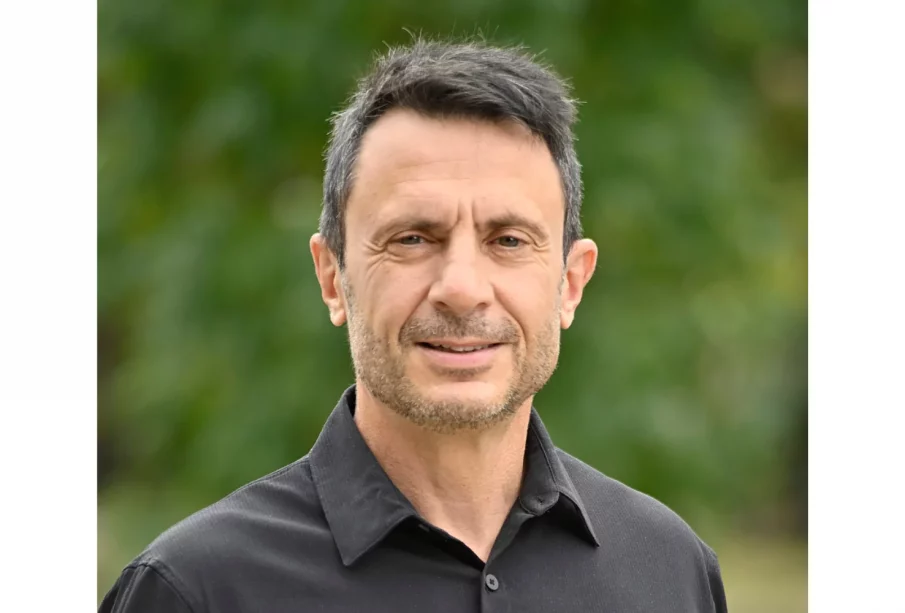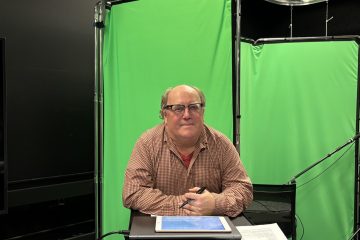Dr. Thomas Hadjistavropoulos earns one of Canada’s top honors for research in the field of aging
The University of Regina (UofR) is back in the national spotlight as psychology professor, Dr. Thomas Hadjistavropoulos, wins the 2025 Canadian Association on Gerontology award. Founded in 1971, the Canadian Association on Gerontology (CAG) is Canada’s premier multidisciplinary association for those whose research has an interest in the field of aging. The CAG award recognizes individuals who have made an outstanding contribution to the field of aging, honouring a lifetime of achievement.
Nation recognition award
The Carillon had the honour to meet and speak with Dr. Thomas Hadjistavropoulos, following the announcement of his award. When asked about his reaction to being the recipient of the prestigious CAG award Dr. Hadjistavropoulos enthusiastically responded, “Well, one always feels honoured and appreciative when they receive a major award, especially an award that comes from recognition from one’s peers.” He continues, “There were hundreds of people during the awards presentation, and many were colleagues; some were students who took part in the journey towards the research advances that we participated in. You certainly get a sense of accomplishment, but more than that, a sense of great appreciation for the many who helped along the way.”
Pioneering research in dementia and pain
Dr. Hadjistavropoulos is certified in cognitive behavioural therapy by the Canadian Association of Cognitive and Behavioural Therapies (CACBT). He has advanced the understanding of the psychosocial aspects of pain, and complementing this work are many authoritative papers and contributions on health care ethics. Hadjistavropoulos has been teaching at the UofR for over 30 years now.
He currently teaches graduate-level courses, such as psychological interventions and clinical supervision, previously teaching undergraduate courses in abnormal psychology and clinical psychology.
Career shaped by a defining moment
Dr. Hadjistavropoulos explained that his interest in the field of gerontology and research on dementia was initially driven by an opportunity during his clinical residency at the University of British Columbian (UBC) hospital, which is usually the last stage of a PhD. He worked at the Alzheimer Clinic in British Columbia (BC) and collaborated with researchers in the field.
One day, one of his colleagues, who was working on neonates, newborns, and pain research, came up to him with a proposal. Dr. Hadjistavropoulos recalls the proposal and adds, “He just came into my office, and he said, ‘I work with a nonverbal population, and I study pain, and there would be a similar issue in severe Alzheimer’s disease when people cannot communicate verbally. How about we do a project together and try to apply some of the methods that I use, namely examination of facial expressions of pain? How about if we use some of those methods to see if we can better understand pain in people with Alzheimer’s disease?’” This was a significant turning point that helped Dr. Hadjistavropoulos redirect his career path towards gerontology.
He noted the limited research being conducted at that time on Alzheimer’s disease. Surprisingly, he explains, “there are still people saying that pain in Alzheimer’s disease is not a big issue because, with brain deterioration, the ability to fully experience pain diminishes. But that does not seem to be the case with clinical pain. The reactions that we see in people with Alzheimer’s are comparable to, if not greater than, those who don’t have the condition.”
One of the challenges of conducting research in this field that remains relevant to date is accessing the research population. Individuals with severe dementia are typically in long-term care facilities, which are often not affiliated with universities and are not incentivized to support research. He says, “It’s very difficult to access those facilities and that population because, unlike hospitals or big hospitals that are typically affiliated with a medical school or a university and are incentivized to do research, long-term care facilities are typically not affiliated with the university, and they’re not incentivized to do research; and they’re very busy, and they’re short-staffed. And then there are outbreaks. I mean, COVID is one of many things that can happen. And when an outbreak occurs, the whole facility shuts down to visitors.”
You just must keep at it, and one day the fog goes away, and then you might see the path.”
Advice for researchers
When asked about which specific area researchers should be focusing on more in the future, Dr. Hadjistavropoulos highlights the critical role of technology. One of his current projects is the use of computer vision to automatize the detection of pain behaviors in patients. He says, “We’ve been doing some work in technology, much in collaboration with a colleague of mine who is a software engineer at the University of Toronto (UofT) and Toronto Rehab Institute. So, one of the things that we are trying to do is to automatize the detection of pain behaviors using computer vision so that we can identify pain when patients go about their daily routines in a long-term care facility.”
Looking ahead
While Dr. Hadjistavropoulos acknowledges that achieving real-world accuracy is difficult, he is optimistic about the progress so far. He states, “We’re getting there. I mean, we have accomplished a reasonable degree of accuracy in automated pain detection in a laboratory environment.” In addition, some apps have been developed to facilitate pain assessment by nurses, and one of Dr. Hadjistavropoulos’ PhD students is currently completing a dissertation that involves evaluating an app designed for caregivers and family members of people with Alzheimer’s disease to help them with stress management.
The Canadian Association on Gerontology award caps off an exceptional year of national recognition for Dr. Thomas Hadjistavropoulos and his journey in the field of gerontology. Earlier this year, Dr. Hadjistavropoulos was also named a fellow of the Royal Society of Canada’s Class of 2025. Election to the Royal Society of Canada (RSC) is one of the country’s highest research honours, recognizing Canada’s leading intellectuals, scholars, and researchers for advancing knowledge and addressing issues that are critical to Canadians.
Dr. Hadjistavropoulos’ advice for students and aspiring successful researchers are two core principles: persistence and patience. “The main thing that distinguishes a researcher who is very successful from one who is not very successful is persistence and commitment. In other words, how many times are you willing to try something again and again until you get it right?” he said.
“If you don’t see the path to success early on, that doesn’t mean anything. You just must keep at it, and one day the fog goes away, and then you might see the path,” he concluded.
With national recognition and decades of impact behind him, Dr. Hadjistavropoulos remains focused on what matters the most: pushing research forward and encouraging students to keep working.









